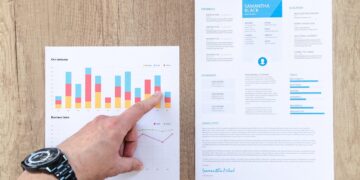Maximizing Savings on a Minimal Budget: Strategies for Low-Income Households
For many low-income families, managing finances and saving money can seem challenging. However, with the right strategies and tools, it is entirely possible to maximize savings, even on a minimal budget. This article explores effective budget management techniques, cost-saving strategies, and financial planning tips to help low-income households enhance their financial stability.
Understanding Your Financial Landscape
The first step to saving money effectively is understanding your financial situation in detail. This includes knowing your total income, essential expenses, debts, and any other financial obligations.
Gather Financial Information
Start by gathering all financial statements, bills, and receipts. This information will provide a clear picture of where money is being spent and help identify necessary adjustments.
Set Realistic Financial Goals
Setting achievable goals is crucial for motivation and success in financial planning. Whether it’s saving for a child’s education, a down payment on a house, or creating an emergency fund, clear goals help prioritize expenses and focus savings efforts.
Effective Budgeting Techniques
Budgeting is at the core of financial management. It helps track spending, manage expenses, and allocate funds appropriately.
Create a Structured Budget
Use tools like budgeting apps or spreadsheets to outline all income and expenses. Categories might include housing, food, transportation, healthcare, and personal expenses.
Implement the 50/30/20 Rule
This budgeting principle suggests spending 50% of your net income on necessities, 30% on wants, and saving or paying off debts with the remaining 20%. Applying this rule can help maintain a balanced financial plan.
Cost-Cutting Strategies
Reducing expenses is a direct way to increase savings. For low-income households, every dollar saved can make a significant difference.
Minimize Utility Bills
Simple changes like switching to energy-efficient bulbs, fixing leaks, and unplugging electronics when not in use can reduce utility bills. Consider budget billing plans offered by utility companies to stabilize monthly payments.
Reduce Food Expenses
Plan meals ahead, utilize coupons, buy in bulk, and choose generic brands over name brands to cut down grocery bills. Cooking at home rather than dining out can also save a considerable amount of money.
Increase Your Income
Sometimes, cutting costs isn’t enough, and increasing your income becomes necessary.
Look for Additional Work
Freelance gigs, part-time jobs, or seasonal work can supplement household income. Explore skills or hobbies that could be monetized through platforms like Etsy or Fiverr.
Government Assistance and Community Programs
Low-income households might qualify for various welfare programs providing financial aid, food subsidies, or utility discounts. Local community centers often have resources and programs that offer additional support.
Use Financial Planning Tools
Maintaining control over finances requires the right tools. Several apps and websites offer free resources designed to help users manage their budgets and savings effectively.
Debt Management Apps
For those navigating high-interest debt, apps like You Need a Budget (YNAB) or Mint can help plan and monitor debt repayment strategies.
Savings Boosters
Tools like Acorns or Digit automate savings by rounding up purchases to the nearest dollar and saving the excess. These tools make saving seamless and effortless.
Planning for the Future
Building a sustainable financial foundation also involves long-term planning.
Invest in Low-Risk Opportunities
Consider low-risk investments such as bonds or mutual funds, which can offer returns with minimal risk. Always consult with a financial advisor to tailor investments to your financial situation and goals.
Education and Self-Improvement
Investing in education can lead to better job opportunities and increased earning potential. Numerous scholarships and grants are available specifically for low-income individuals seeking further education.
Conclusion
While saving money on a minimal budget can be challenging, implementing these strategies can make a tangible difference in the financial health of low-income households. By understanding and managing finances effectively, utilizing cost-cutting measures, increasing income sources, and planning for the future, you can set a course for financial stability and growth.



























































